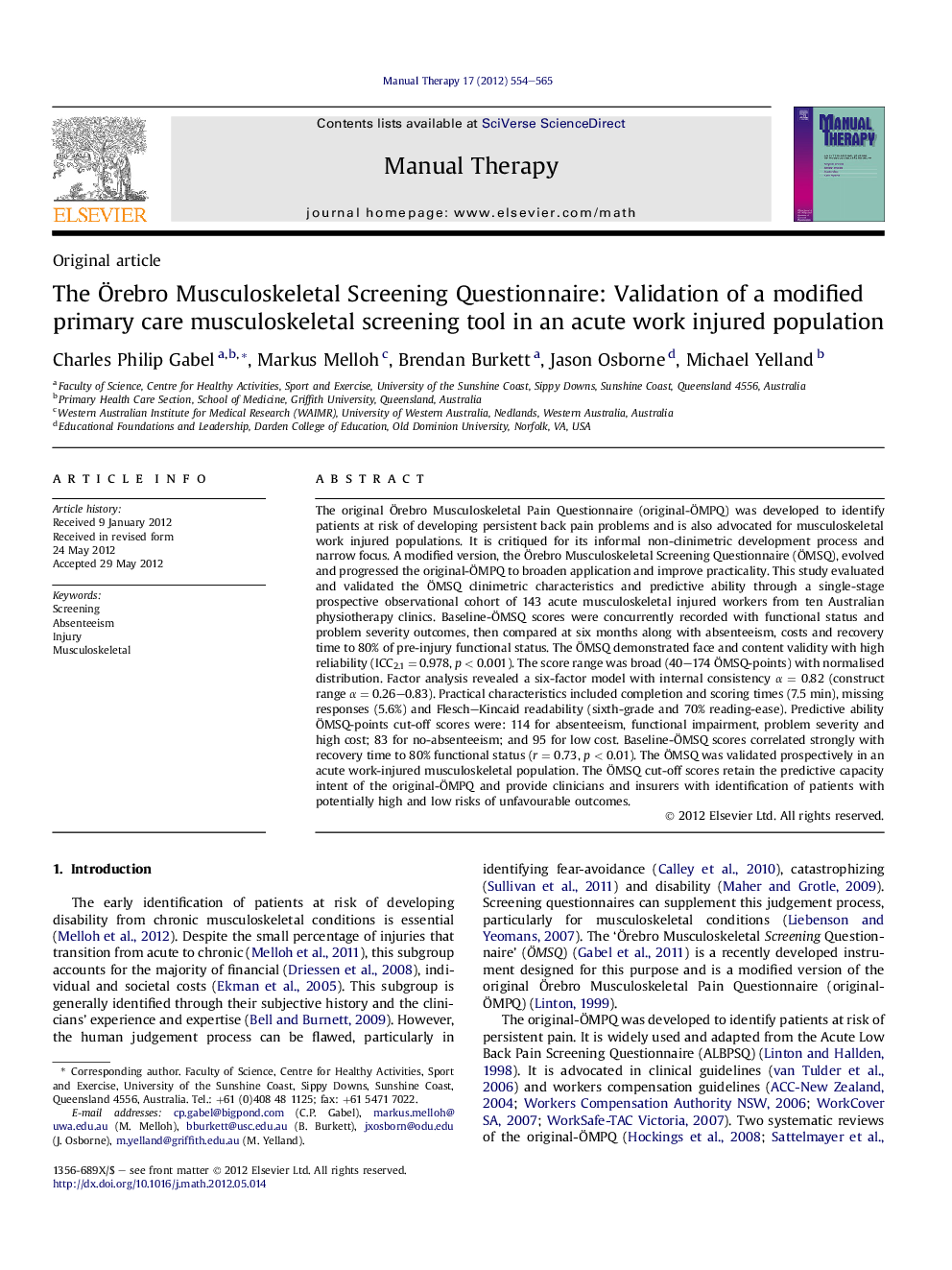| کد مقاله | کد نشریه | سال انتشار | مقاله انگلیسی | نسخه تمام متن |
|---|---|---|---|---|
| 5864824 | 1135939 | 2012 | 12 صفحه PDF | دانلود رایگان |

The original Ãrebro Musculoskeletal Pain Questionnaire (original-ÃMPQ) was developed to identify patients at risk of developing persistent back pain problems and is also advocated for musculoskeletal work injured populations. It is critiqued for its informal non-clinimetric development process and narrow focus. A modified version, the Ãrebro Musculoskeletal Screening Questionnaire (ÃMSQ), evolved and progressed the original-ÃMPQ to broaden application and improve practicality. This study evaluated and validated the ÃMSQ clinimetric characteristics and predictive ability through a single-stage prospective observational cohort of 143 acute musculoskeletal injured workers from ten Australian physiotherapy clinics. Baseline-ÃMSQ scores were concurrently recorded with functional status and problem severity outcomes, then compared at six months along with absenteeism, costs and recovery time to 80% of pre-injury functional status. The ÃMSQ demonstrated face and content validity with high reliability (ICC2.1 = 0.978, p < 0.001). The score range was broad (40-174 ÃMSQ-points) with normalised distribution. Factor analysis revealed a six-factor model with internal consistency α = 0.82 (construct range α = 0.26-0.83). Practical characteristics included completion and scoring times (7.5 min), missing responses (5.6%) and Flesch-Kincaid readability (sixth-grade and 70% reading-ease). Predictive ability ÃMSQ-points cut-off scores were: 114 for absenteeism, functional impairment, problem severity and high cost; 83 for no-absenteeism; and 95 for low cost. Baseline-ÃMSQ scores correlated strongly with recovery time to 80% functional status (r = 0.73, p < 0.01). The ÃMSQ was validated prospectively in an acute work-injured musculoskeletal population. The ÃMSQ cut-off scores retain the predictive capacity intent of the original-ÃMPQ and provide clinicians and insurers with identification of patients with potentially high and low risks of unfavourable outcomes.
Journal: Manual Therapy - Volume 17, Issue 6, December 2012, Pages 554-565